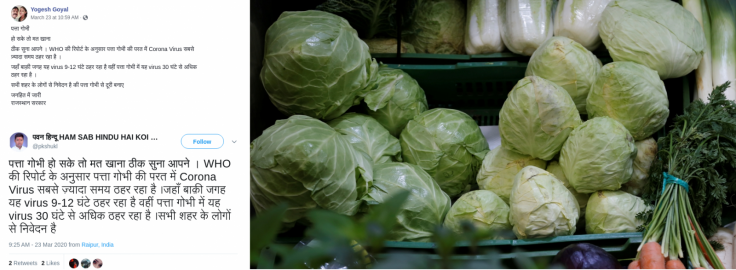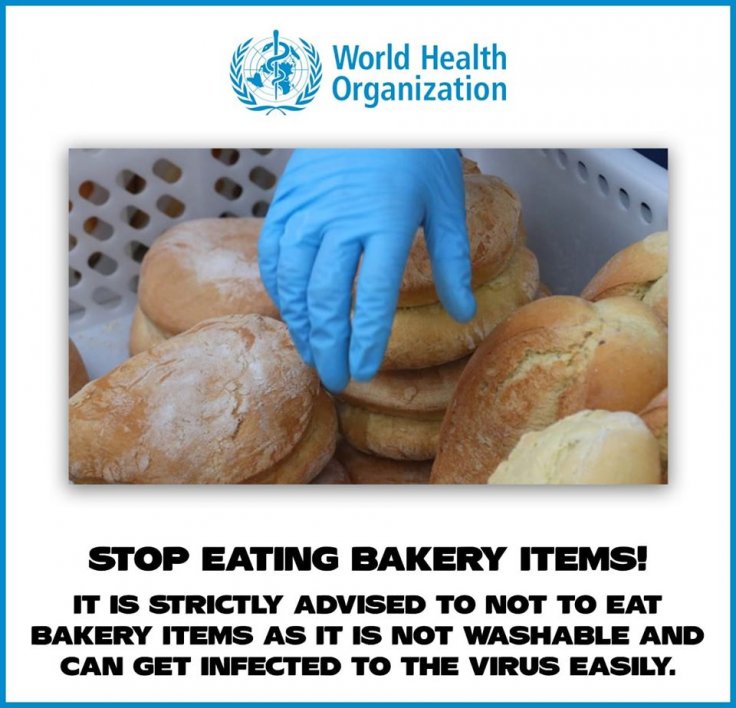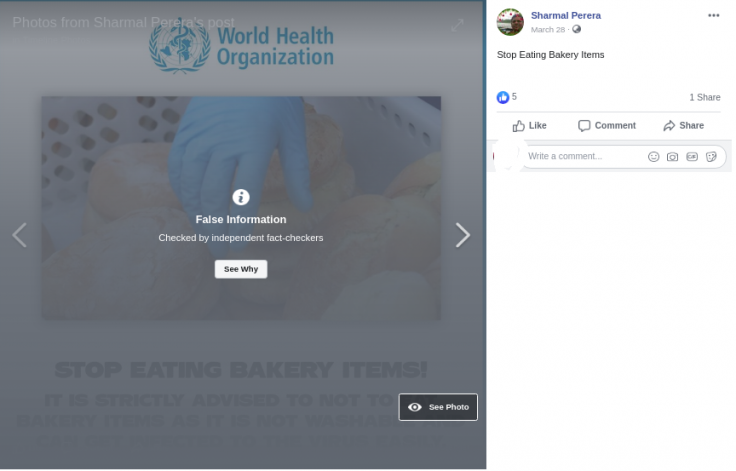Though scientists are yet to develop a medicine or vaccine against coronavirus, common people all over the world have been suggesting many homemade remedies. While most of these have been proved to be false, fake and misleading news connected to the pandemic seems to be never-ending.
The latest prescriptions that are going viral on social media are regarding the intake of cabbage, a common leafy vegetable popular in many countries all over the world, and bakery products. Many netizens have been sharing "a warning by the World Health Organization (WHO)" against eating cabbage and bakery products amid the coronavirus outbreak.
According to the viral message, the WHO has advised the public not to eat cabbage as the novel virus can stay in it for more than 30 hours.

Another message with the logo of the WHO has also surfaced online, requesting people to avoid consuming bakery items as they cannot be washed. "Stop eating bakery items. It is strictly advised not to eat bakery items as it is not washable and can get infected to the virus easily," reads the viral message.

Claims busted
The claims on the WHO forbidding us from eating cabbage and bakery items are fake as the organisation has never issued any such warning officially on the website so far. Also, the US-based Centers for Disease Control and Prevention (CDC) had earlier said that there isn't any evidence to support the transmission of the novel virus associated with food.
The Indian central government's official Press Information Bureau (PIB) has also refuted the claim confirming it to be a piece of fake information. "No such report has been released by the World Health Organization. Do not be confused with misleading information on #Coronavirus. To protect yourself and your family from the Coronavirus, maintain a proper distance between each other. Together we can fight # COVID19 (translated from Hindi), PIB tweeted.
Facebook has also flagged the viral photo shared by its users to stop eating bakery products as "False information".

How long can the virus survive on different surfaces?
According to the latest studies on the coronavirus, the virus can stay for a longer period on different surfaces. Researchers have found that it can stay on copper for up to four hours, on cardboard for up to 24 hours, and on plastic and steel for up to 72 hours.
Though there is a possibility of transmitting the virus from groceries and packages if they are delivered by someone sick, experts are of the opinion that it's a low risk. However, it is necessary to sanitise all items bought from outside and some experts have also said that cooked food items bought from outside should be microwaved before consuming. Nevertheless, it is important to wash your hands with soap and water after handling them.









